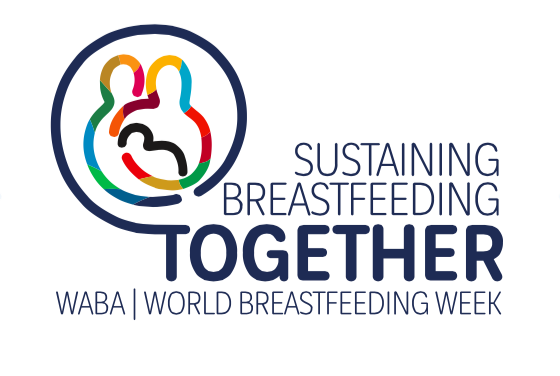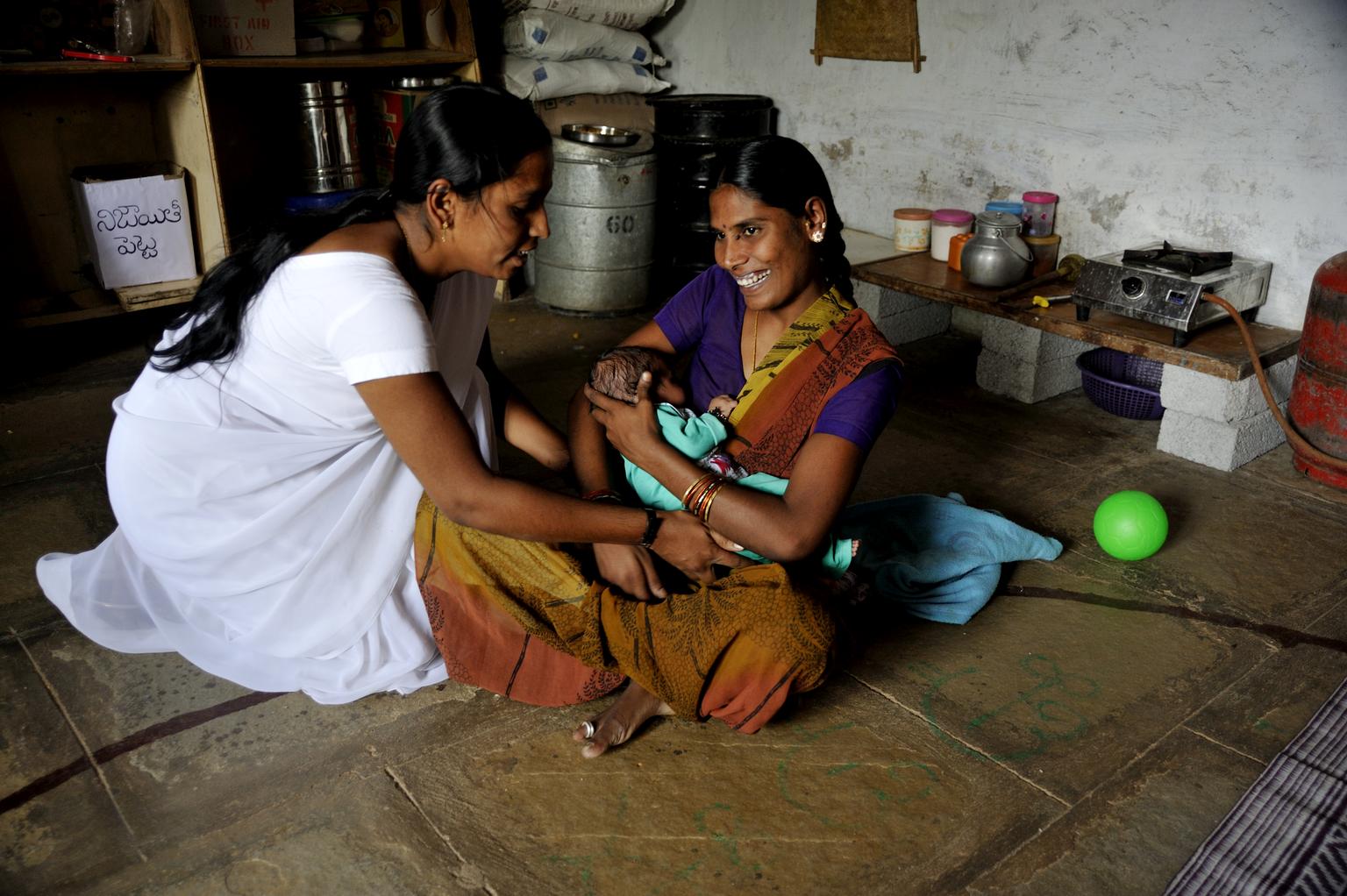
World Breastfeeding Week – Sustaining Together
by Sukanya Sudarson August 1 2017, 4:56 pm Estimated Reading Time: 5 mins, 43 secsThe World Breastfeeding Week (WBW) is celebrated annually from 1st to 7th August with the goal to promote exclusive breastfeeding for the first six months of life and in turn promote the health of infants, mothers, families and communities around the world. World Breastfeeding Week was first celebrated in 1992 by World Alliance for Breastfeeding Action (WABA) and is now observed in 120 countries by UNICEF, WHO and their partners including individuals, organisations and governments. In its 25th year, WBW continues to promote communities working together for the common good. This year’s theme is ‘Sustaining Breastfeeding Together’ and the objectives of WBW 2017 are to
- Inform – understand the importance of working together across the four thematic areas
- Anchor – recognise your role and the difference you make within your area of work
- Engage – reach out to others to establish areas of common interest
- Galvanize – work together to achieve the SDGs by 2030

Sustaining Breastfeeding Together encourages and empowers us to think about how to value our well-being from the start of life, and how to respect and care for one another as well as our planet. “World Breastfeeding Week is a vibrant global movement for action to promote, protect and support breastfeeding by mothers anywhere and at any time. It expands and connects the power of one with the power of many. Only by working together can we make the change we need”, cites Dr Anwar Fazal, Chairman Emeritus for the World Alliance for Breastfeeding Action.
Sustaining breastfeeding together
Health of the Infant:
Breastfeeding is an important contributor to the survival, health and well-being of both the infant and the mother. Breast milk provides the necessary nutrients depending on the needs of the baby and lifetime immunities to the infants. It is easier for the infants to digest and contains antibodies that help fight respiratory illnesses and digestive distress. Studies have linked breastfeeding to higher IQ scores and neurological development in later childhood and it is also thought to lower the risk of diabetes, obesity and certain cancers in children. The physical closeness and skin-to-skin contact helps the baby bond with the mother and feel secure.

Best for the mother:
Mothers also benefit from breastfeeding, as it is associated with decreased risk for maternal diabetes, heart disease, several cancers, protects against osteoporosis and bone fracture and reduces the risk of postpartum depression. Breastfeeding releases a hormone called oxytocin in the mother that contracts the uterus and helps her in regaining the pre-pregnancy shape quicker. Though LAM (lactational amenorrhea method) is a natural form of contraception and provides various health benefits for the mother, women across the world have problems in the first few days of breastfeeding.
Brooke Scelza, an evolutionary anthropologist at the University of Los Angeles, California says that breastfeeding is a challenge to all new-moms whether it is the western society or the Himbas, a cattle-herding ethnic group of people living in the desert of northern Namibia. She says two-thirds of the Himba women she studied had some problems at the beginning, such as pain, fear, troubles getting the baby to latch and concerns about the milk supply — just like American moms. Here is where the family and community play an important role in sustaining breastfeeding together.
Action at the family level:
The care and support from the husband/ partner, family members such as mother’s mother (grandmother), in-laws, or friends play a key role in the success of breastfeeding. When the mother feels supported and encouraged, she is more likely to feel confident and empowered with her decision to breastfeed her new-born. The support can be in any form – it can be just encouraging mothers to breastfeed their babies, give them privacy and space, assist in childcare and household tasks to give her more time or even emotional support by providing empathy and understanding.
Action at the Community level:
Support for breastfeeding at the community level is critical especially in a country like India, where the birth of a baby is celebrated by almost the entire neighbourhood or community. The NFHS-4 shows evidence that suggests peer counselling by mother support groups improved the infant and young child feeding practices in Lalitpur district in Uttar Pradesh. The exclusive breastfeeding rate in Lalitpur is 71. 3% which is exceeding the UP average of 41.6% and national average of 54.9%. Community support groups like SHGs, peer-groups and neighbourhood groups are helpful in promoting breastfeeding among new mothers.
Responsibility of baby food corporations:
Breast milk is natural and environmentally safe, it is efficient and economical as it uses no packaging, extra water, fuel, transportation or expensive formula. It produces no trash and it saves time and energy. This in turn helps our environment by keeping it clear of any bottle and formula packaging. Baby food corporations must keep these additional benefits of breastfeeding in mind and follow the national food standards and abide by the national legislation to control marketing of baby foods/ breastmilk substitutes like infant milk substitutes, feeding bottles and infant foods. They can be socially responsible by promoting optimal breastfeeding and infant and young child feeding.
Role of the government:
The Government of India, adhering to their commitment to promote breastfeeding, launched a national programme in August 2016, “MAA-Mother's Absolute Affection”, one of the salient features of which is to provide counselling services directly to the mother and family. It calls upon all states of India to step up for this work to gain on both early and exclusive breastfeeding. To protect breastfeeding, Government of India enacted the Infant Milk Substitutes, Feeding Bottles and Infant Food (Regulation of Production, Supply and Distribution) Act, 1992. To support women for sustaining exclusive breastfeeding, the Parliament recently passed a new policy on maternity protection that allows 26 weeks of maternity leave and other benefits to all working women. The government must step-up further by effectively implementing these policies at all levels, including the private sector, to contribute to increased breastfeeding rates.
Age-old practices and recent research, both reiterate the significant role of breastfeeding and the benefits it has for the baby, the mother and the community. Breastfeeding from the very beginning of life provides a sense of security and trust in every child, which is the foundation for any desire to thrive. We, as an individual, as a family, as a community and as a society can do so much good to ourselves and our future generations by embracing and encouraging breastfeeding and supporting mothers and babies who are breastfeeding. Happy World Breastfeeding Week!
Reference:
- https://www.bpni.org/wbw-2017
- https://www.bpni.org/WBW/2017/WBW-Action-Folder-2017.pdf
- http://worldbreastfeedingweek.org/
- http://www.nrtoday.com/opinion/guest_columns/celebrate-health-with-world-breastfeeding-week/article.html
- http://www.jpost.com/HEALTH-SCIENCE/Nursing-your-baby-has-significant-health-benefits-501199
- http://www.dnaindia.com/health/report-more-kerala-mothers-breastfeed-baby-within-one-hour-survey-2518905
- http://timesofindia.indiatimes.com/city/patna/breastfeeding-helps-mothers-as-well-expert/articleshow/59743551.cms
- http://www.npr.org/sections/goatsandsoda/2017/06/26/534021439/secrets-of-breast-feeding-from-global-moms-in-the-know?linkId=40390326




-173X130.jpg)
-173X130.jpg)
-173X130.jpg)
-173X130.jpg)
-173X130.jpg)
-173X130.jpg)
-173X130.jpg)
-173X130.jpg)